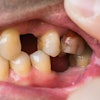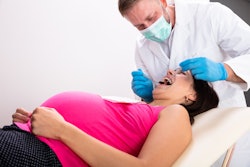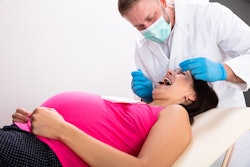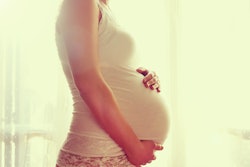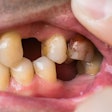Tooth decay may be associated with an increasing number of pregnancies; however, it may not be linked to the start of menstruation or menopause, according to a new study published on May 23 in BMC Oral Health.
The findings highlight the need for more awareness of maternal oral health, the authors wrote.
“In summary, this study found a significant association between a higher number of pregnancies and poorer oral health,” wrote the authors, led by Mitra Darbandi, of Kermanshah University of Medical Sciences, Iran.
Past research has shown a possible correlation between reproductive history and dental health outcomes. Women experience hormonal fluctuations during different stages of life, including pregnancy and menopause, that may affect dental health. Nevertheless, the specific causes of poor oral health in women of reproductive age remains unknown.
To investigate the association between caries experience and reproductive history, a cross-sectional study including 5,151 women with a mean age of about 47 that used data from the Ravansar Non-Communicable Disease (RaNCD) cohort was conducted. A questionnaire was used to collect data on reproductive history, including age at onset of menstruation, number of pregnancies, and age at first pregnancy. The decayed, missing, and filled teeth (DMFT) index was assessed using dental exams. To examine associations, statistical analyses and linear regression were completed, according to the study.
DMFT scores were affected by reproductive history. Women who had seven or more pregnancies had a significantly greater median DMFT than those with fewer pregnancies (p < 0.001), the authors wrote.
In the unadjusted model, each additional pregnancy was linked to a rise in DMFT (β = 1.69, 95% confidence interval [CI]: 1.61, 1.77). After adjusting for factors including age, brushing habits, flossing frequency, depression, and sugar consumption, the correlation remained significant (β = 0.30, 95% CI: 0.04, 0.56), confirming that women with a higher number of pregnancies had greater average DMFT scores, they wrote.
After adjusting for the same factors, there was no significant correlation between DMFT and onset of menstruation (β = -0.07, 95% CI: -0.12, 0.17) or age at menopause (β = -0.10, 95% CI: -0.33, 0.11), the authors wrote.
However, the study had limitations, including its design. The observed relationships were not causal and, therefore, longitudinal studies should be conducted in the future, they noted.
“The findings demonstrated that, after adjusting for potential confounders, an increasing number of pregnancies was associated with higher DMFT scores, underscoring the need for greater awareness of maternal oral health,” Darbandi and colleagues wrote.

